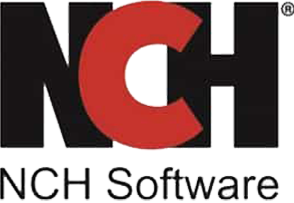Cloud and desktop accounting software are two types of accounting solutions that differ primarily in deployment and accessibility. The choice between cloud vs desktop accounting software depends on factors, such as the company’s size, structure, mobility requirements, and preferences for cost and control:
- Cloud accounting software is more suitable for small businesses and those with remote teams
- Desktop accounting software is better for larger enterprises with specific security or customization needs
Cloud Accounting Software | Desktop Accounting Software | |
|---|---|---|
Deployment |
|
|
Accessibility |
|
|
Updates & Maintenance |
|
|
Collaboration & Sharing |
|
|
Cost Structure |
|
|
Security |
|
|
Sharing With a Tax Preparer or Independent Accountant |
|
|
Use Cases and Pros & Cons
Pricing for Cloud vs Desktop Accounting
We looked at some popular accounting software providers to compare pricing, the number of users included, and accessibility. Please note that this pricing is as of Jan. 15, 2024.
Pricing | Number of Users Included | Accessibility | |
|---|---|---|---|
Plus | $90 monthly | 5 | Cloud |
Advanced | $200 monthly | 25 | Cloud |
Free | Unlimited | Cloud | |
Pro | $58.92 monthly | 1 | Desktop |
Premium | $96.58 to $222.25 monthly | 5 | Desktop |
Quantum | $160 to $409.17 monthly | 10 | Desktop |
 | One-time payment of $129 to $159 (free for businesses with five or fewer employees) | 1 | Desktop |
We included Wave and NCH Express Accounts, two of the solutions above, in our roundup of the best free accounting software. Check it out if you’re seeking free options.
Considerations for Cloud vs Desktop Accounting
There are many important factors to consider in your evaluation of cloud vs desktop accounting, including the following:
- Size and structure: Consider the size and structure of your organization. Cloud software is often more scalable and suitable for businesses with remote teams. However, large businesses often require customization that is difficult to find in cloud accounting software.
- Budget constraints: Assess budget constraints. Cloud solutions may have lower upfront costs, but subscription fees can accumulate over time.
- Internet reliability: Consider the reliability of your internet connection. If internet connectivity is a concern, desktop accounting may be a more viable option.
- Security requirements: Evaluate your security requirements. Cloud providers invest in security, but some businesses may have specific security or compliance needs that favor desktop solutions.
- Collaboration needs: If real-time collaboration is crucial, a cloud solution might be more suitable for your business.
- Adaptability to change: Consider how adaptable your organization is to change. Cloud solutions often involve a transition period and may require adjusting workflows.
- External tax preparer or accountant: Sharing your books with an accounting professional outside your business is much easier with cloud accounting software than with desktop software.
Intuit will no longer be selling new subscriptions of QuickBooks Desktop Pro Plus and QuickBooks Desktop Premier Plus to United States customers after July 31, 2024. Existing subscribers will not be impacted by this change.
Frequently Asked Questions (FAQs)
The main difference lies in deployment and accessibility. Desktop accounting software is installed locally on a user’s computer, while cloud accounting software is hosted on remote servers and accessed through the internet.
Both cloud and desktop accounting can be secure, but the approach differs. Cloud providers invest in robust security measures while desktop security relies on user implementation. The choice depends on factors like data sensitivity and trust in the service provider.
Because a cloud accounting platform relies on a stable internet connection, if there are connectivity issues or if the internet goes down, users may experience disruptions in accessing their financial data. Users might also be restricted to the features and configurations offered by the service provider, which could be a drawback for businesses with unique or complex accounting needs.
Whether cloud accounting is better than desktop accounting depends on the specific needs, preferences, and circumstances of the user or organization. It is important to consider factors, such as price, accessibility, scalability, and data security, when making your decision. Cloud accounting is a better fit for users needing remote access to their books, scalability in their software, and integration with third-party apps.
Bottom Line
There is no one-size-fits-all answer to whether cloud vs desktop accounting software is better because it depends on the unique needs and preferences of your business. Before deciding, we recommend carefully evaluating the advantages and drawbacks of each option in your specific requirements, such as budget and collaboration needs.